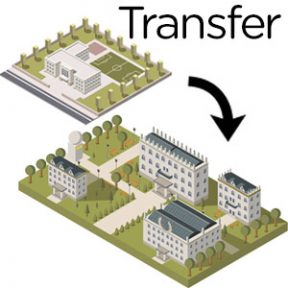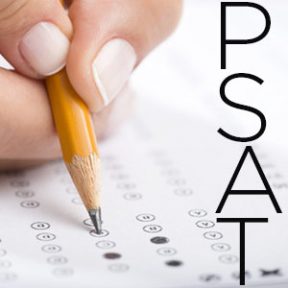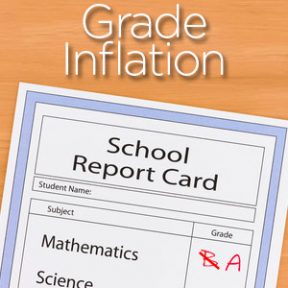Merit Blog
- Filter by
- Categories
- Tags
- Authors
- Show all
- All
- $1.35 Million fine
- 10%
- 126 mg/dL
- 2020
- 2021
- 2024
- 2030
- 2nd amendment
- 2nd wave
- 3-layered masks
- 3D shields
- 4 generations
- 4-year college plan
- 4-year college plans
- 4-year plans
- 5 easy tips to reduce wildfires
- 5% tuition hike
- 5th year
- 6 feet apart
- 6:00am to midnight
- 7-days
- 8-year medical degree
- A's for all
- AB104
- AB2147
- absentee ballot
- academic planner
- academic skills
- academics
- access to critical knowledge
- ACE
- ACEP
- ACT
- activists
- ACTs
- addiction
- admission decisions
- admissions
- admissions yield
- adolescent behavior
- advanced directive
- affirmative action
- affordable college options
- age 25
- aid
- Aidan Levan
- air pollution
- AK-15
- Alisha Bhatia
- alternative classes
- alternative ways to harden home
- alternatives to gift giving
- American men
- analogy
- analytical writing placement exam
- Angie Richman
- animal to human transmission
- anna krawisc
- Anush Anand
- anxiety
- AP Business Principles with Personal Finance
- AP courses
- AP Cybersecurity
- AP exams
- AP tests
- apple juice
- application update
- applications
- apply EA
- apply ED
- apply regular admission
- appreciation for service
- apprenticeships
- apricots
- April 23
- arbor day
- ARES
- Arul Mathur
- atomic bomb
- Aurchana Manicavasagan
- Aurchana Manickavasagan
- AWPE
- babies
- baccalaureate degrees
- back to school night
- badges
- baking christmas cookies
- baking stations
- baking with friends
- baking with kids
- ban on travel
- batteries
- bee killing
- beehives
- before and after
- best colleges
- Best of Rock 'n Roll
- Best of Rock 'n Roll: 1955-1975
- Beyond Van Gogh
- Big Ag
- big sticker tuition
- biography for grandchildren
- bistro table covers
- bistro tables
- black holes
- Black Lives Matter
- blackmail
- blocking time for tasks
- blocking time in GCal
- body image
- book by teen for teens
- boomers
- boundaries
- boy scouts
- Boys' Day
- budget
- budget cuts
- build academic skills
- build your own christmas tree
- building furniture
- built oak shelves
- bushmeat
- Busy Woman's Organizer
- buy from these companies
- buyinbulk
- buying first house
- CA
- cacao
- Cal
- Cal Fire
- CalFire
- Calif Mother of the Year
- California
- California American Mothers
- California college savings accounts
- California Fair Plan
- California law
- California Mother of the Year
- California new high school requirement
- California savings fund for 1-12 graders
- California State University
- calkids
- cannabis growers
- career and college
- Carlon's Fire Protection
- carp
- cash
- catholic
- ce
- cellphones
- censoring curriculum
- Central Fire
- Central Fire Department
- Central Fire Dept
- CERT
- chainsaw demonstration
- changing eating styles on campus
- chaos
- chatgpt; AI; essay writing; college application essays; cheating; artificial intelligence; teaching; teaching tools
- cheating
- cheating on tests
- cherries
- chicago
- chicken coop
- chicks
- children's day
- chili sunflower seeds
- china
- chipping program
- chocolate is good for the heart
- choices
- choose college
- choose major
- choosing colleges
- choosing to stay near home
- christmas cookies
- Chrohn's Disease
- ciappino
- cigs
- circadian rhythm
- City College of San Francisco
- civil rights act of 1964
- clamshellplastic
- Class of 2013
- classes
- classrooms
- clear 5 feet around the house
- Clery Act
- climate
- climate change
- climate crisis
- closing campuses
- closure for family and friends
- cloth masks
- co2
- CO2 monitors
- coach salaries
- coalition for college
- cocoa
- coconut coir
- codered
- college
- college admission
- college admissions
- college admissions decisions
- college applications
- college athletics
- College Board
- college campus tours
- college campuses closing
- college credit for apprenticeships
- college decisions
- college degrees
- college dining halls
- college experience
- college grades
- college jobs
- college rankings
- college rejection
- college rejections
- college savings accounts
- college savings fund
- college spring break
- college students
- college students vote
- college tuition
- college wait lists
- college waiting lists
- college yields
- college-bound freshmen
- colleges cut health care budget
- colleges still accepting applications
- collegevoters
- combustible materials
- common application
- communication
- community college
- community college vs 4 year college
- community working together
- Company A
- completing suicide
- Congo
- contact tracing
- Cordyceps
- coronavirus
- coronavirus gap year
- coronavirus test kits
- corpus christi
- costumes
- countdown
- COVID
- covid-19
- COVID-19 rules
- COVID-19 vaccine record
- Crystal English
- CSU
- CSUs
- cultivating mushrooms
- curriculum
- cuts
- cutting trees
- cyberbullying
- cybersecurity essential for everyone
- dairyfree yogurt
- Daisy Payton
- Dance Designs
- Dancenter
- Danny Cortazzo
- David Dean
- David Reid
- david vasquez
- debt
- defensible space
- degree
- dehydrating fruit
- Dems
- den leader
- devid
- diabetes
- dictionary
- dim bulbs
- dinners for ER staff
- diploma
- disaster plan
- discrimination
- disenfranchised
- dishsoap
- diversified class
- diversity
- DIY
- DIY cherry picker
- diy laundry detergent
- doctor
- doctors
- doggie dressup
- Dollies
- don't cut a tree
- dorm life
- dorms
- double scholarships
- Dr Nicole D'Arcy
- Dr. Fauci
- Dr. Lin
- draft
- drive less
- drop out rate
- drought
- drought shaming
- droughts
- Ds vs C-
- dumb
- dystopian society
- early college
- earnings
- Earth Day
- eco friendly christmas
- eco gift wrap
- eco xmas tree
- effort not outcome
- eggs
- el paso
- Election
- elementary
- eliminate plastics
- elite college admissions
- ELWR
- ember-resistant Zone
- emergency
- emergency rescue career
- EMT
- EMTs
- Enola Gay
- enrollment
- entitled Americans
- Entry Level Writing Requirement
- EO13950
- EOS
- equal education for all children
- equine evacuation
- equity gap
- ER doctor
- ER doctors
- Eric Swenson
- Eric Wei
- essay prompts
- ethnic studies
- ethnicity in college admissions
- ethnicstudies
- Evacuation Smarts
- event
- Exam Rabbit
- Executive Order
- Executive Order 9066
- exotic animals
- expanding enrollment
- expunge records
- F.A.C.E.
- FACE
- face shields
- FAFSA
- family
- family cleaning
- family heirlooom
- family legacy
- family reunion
- family traditions
- far west fungi
- Farm Bill
- favoritism
- feelin beautiful
- feeling appreciated
- female
- Ferrell's Donuts
- financial
- financial aid
- financial literacy for every teen
- fire activate canister extinguisher
- Fire Defense Service
- fire extinguishers
- fire fighting
- fire hydrants
- fire inspections
- fire insurance
- fire mitigation
- fire preparedness
- fire prevention
- fire prevention education
- fire prevention tips
- fire protection
- fire resistant siding and walls
- fire solutions
- firefighters
- firefree
- firewise
- Firewise event agenda
- Firewise event speakers
- firewise USA
- first female doctor
- fish oil
- fixing
- flu shot
- folding paddleboard
- FOMO
- forming pandemic pod
- founding fathers
- fracking
- Frank Locatelli
- fraternities
- free child care
- free childcare
- free childcare in your home for free
- free money
- free tuition
- fresh peaches
- fresh raspberries
- fresh squeezed apple juice
- freshman experience
- freshmen
- frontline
- frontline workers
- fully functioning brains
- gap year
- gap year trend
- garlic
- gaslands
- gaslands 2
- GCal
- GE
- gen ed
- Gen XYZ
- Gen Y
- Gen Z
- gender fluid
- gender identities
- gender-neutral singular pronoun
- genderqueer
- genealogy
- generationz
- getoutthevote
- getting kids to spring clean
- gift bags
- gift giving
- global warming
- glove box
- glyphosate
- Go Bag
- go bags
- Google Calendar
- GovNewsomvetoesbill
- GPA
- grad regalia on dog
- grad requirements
- grad school humanities
- grade improvement options
- grade inflation
- grades
- grades vs pass/fail
- graduation rate
- graduation rates
- grammar
- grammarian
- grants
- grassroots
- great value
- Greek life
- Greek society
- gregory
- gregory gavin
- Grinnell
- grit
- growing almonds
- growing mushrooms
- growing my own herbs
- growing seedlings in a rain gutter
- growing walnuts
- gun violence
- guns
- guns on campus
- hair pieces
- halloween
- ham radio
- hand sanitizer
- hand sanitizers
- handmade gifts
- hands-on experience
- hangouts
- hannah
- hannah faris
- Harbor UCLA ER
- Harpin' Jonny and Clark
- Harvard
- harvesting fruit
- hate crimes
- hatred
- hazing
- healthcare workers
- heart attacks
- herbs
- high school
- high school graduation requirements
- high school seniors
- high school students
- higher enroll rate
- higher graduation rate
- Hiroshima
- historians
- history
- hoarding
- holiday gifts
- holiday preparation
- holistic view
- home
- Home Depot
- home fires
- home hardening
- homeless
- homemade masks
- homemade yogurt
- homeschool
- hope for college
- housewarming gifts
- how to host a socially distant lunch
- human rights
- IBC tanks
- IBD
- IBM
- immersive exhibit
- Impact Incubators
- in-person classes
- increased odds
- independent studies
- indoor ventilation
- industrial revolution
- inflammation of the heart
- inflation
- inflation causing tuition hikes
- inmate crews
- innovation
- inoculating millet grain
- insanity
- international
- internet
- internet gaming disorder
- internment
- internment camps
- internships
- interracial marriages
- interviews
- iphone
- Ishan Bhatia
- JACL
- jaclyn
- Jaclyn D'Arcy
- Japan
- Japanese Americans
- Japanese Americans incarcerated during WWII
- Japanese Children's Day
- joe
- joe jordan
- john deere
- John Gerhardt
- John Walbridge
- joint degree program
- journal entries
- Jr. Company
- June 20
- just for fun
- K-12 college savings accounts
- kawana family reunion
- Keith Trinity
- kellogg
- kenya
- Kianti's
- kickstarter
- Kiran Sunil
- Know your zone
- kombucha
- Laina Farhat-Holzman
- lamb haas avocados
- laundrydetergent
- law
- leaders
- leads for recycling
- learn at home
- learning
- learning hubs
- legacy
- legacy admissions
- legacy admissions; Varsity Blues Scandal; Leave Your Legacy
- let them fail
- letters of recommendation
- Liberty Lost Lessons in Loyalty
- Limb up trees
- limbing
- Live Oak CERT
- live on campus
- loans
- location
- logan
- logan conover
- Loki
- long-term commitments
- lost scholarship opportunities
- lovechocolate
- low-income families
- low-income students
- Lowe's
- M.B.A.
- mail ballots
- mail-in ballots
- Make America White Again?
- make your own
- malaysia
- male
- manu koenig
- march deadline
- Marco Mack
- Marianne's Ice Cream
- martin
- martin gaskell
- mas
- mas hashimoto
- masks
- matching signatures
- math scores dropped
- May 1st
- May 5th
- MBA
- meat alternatives
- medi-honey
- medical
- medical school
- medical supply chain emergency act
- Mehtaab Dhillon
- men vs women in college
- mental health
- Merit
- merit academy
- Merit Academy curriculum
- Merit Educational Consultants
- Merit Educational Consultants LLC
- Merit Planner
- Merit Summer Theater
- methane
- methanol hand sanitizers
- metrol
- mexico
- Michael Beck
- Michele Roush
- micro communities
- microgreens
- middle
- Mike DeMars
- millennials guide to free childcare in your home
- missing ingredient is grit
- Mochi
- model perseverance
- Monarch Dance
- money
- more documentation
- more women in college
- Mother of the Year
- Mother's Day
- multitasking
- MURS radio
- MURS radios
- mushroom pesticides
- mushroom spores
- mushrooms
- music
- muslim
- mycelium spawn
- N95
- N95 masks
- Nagasaki
- National Dance Day
- National Doctor's Day
- National Toyota Community Scholars
- National Women Physicians Day
- nationalteacherappreciationday
- natural gas
- necole
- nectarines
- need-based admissions
- Neha Surendar
- never again.
- new digital format
- new hope
- new law
- new normal
- new school year
- newborns college funds
- Newsom
- Nicholas Baldridge
- Nicholas Tran
- Nicole D'Arcy
- Nicole D'Arcy MD
- nicotine pouches
- Nishi Dharia
- NLP
- no artificial christmas trees
- No Limits
- no loans
- no more online classes
- no red meat
- no tuition
- no-more-tears
- nonbinary gender identification
- North Rodeo Gulch
- North Rodeo Gulch Firewise
- North Rodeo Gulch Firewise USAm
- northwestern
- not disclosing campus crimes
- Nov 7
- NRG firewise
- NRG Firewise event
- NRGfirewise
- NRGfirewise USA
- nuclear bomb
- nurse appreciation day
- oak cabinets
- oak grove
- obsession
- ocean kayak
- omega-3
- on campus
- on-campus classes
- oncampus classes
- one person can make a difference
- one-on-one accredited classes
- one-on-one classes
- online
- online cheating
- online classes
- online credentials
- online tests
- OR3
- organizational skills
- organizing
- organizing electronics
- origami paddler
- OSHA
- outdoor dining
- overpopulation
- pack leader
- Pam Pac'd
- pandemic
- pandemic halloween
- pandemic pod
- pandemic pods
- pandemic solutions
- Pandemic year
- pandemics
- paper towels
- pascal
- pascal costa
- pass/fail
- pass/no pass
- passing grades
- pathways to solutions
- Patriotic Education
- pay off
- pay teachers more
- Peace Memorial Park
- peach yogurt
- peaches
- penny wise pound foolish
- perfect storm
- persistency rate
- personal biography
- personal pronouns
- pesticides
- petshampoo
- Phil Irwin
- phone etiquette
- phone schedules
- phones
- phonics
- phonograms
- photo album
- photo organizing
- photo renaming
- plagues
- plant-based
- planting trees
- plastics leach toxic chemicals
- plums
- podcast
- poison oak
- popoverpop
- postponed
- postponing weddings
- PPE
- PPEs
- prefrontal cortex
- prejudice
- prep for career
- prep for college
- prep for life
- prepring for finals
- preschool
- prescribed burns
- prescription medications
- Presidential Advisory 1776 Commission
- prevent wildfires
- prices
- priests
- private school
- project
- project merit
- projectmerit
- projects
- pronoun confusion
- proof of immunization
- propaganda
- propagating mushrooms
- protection against COVID
- protects against air pollution
- protects brains
- protocols
- protocols for pandemic
- public v private
- quarantine
- quarantine on campus
- questions for teachers
- race
- racism
- Racism and America's Concentration Camps
- radios
- rain gutter
- rain gutter trough
- rainforests
- rainwater
- rainy day project
- rankings
- raspberries
- rats overcrowded
- RCD
- reading
- reading scores dropped
- reading wars
- real heros
- record breaking application numbers
- recruiting teachers
- recycler
- recycling
- reduced tuition
- reducing wildfire risks
- redwood deck
- refinishing cabinets
- refreshing summer drink
- register to vote
- rehabilitation works
- reinvent
- reinvent yourself
- rejection
- rejectRoundup
- relocation camps
- remedial college classes
- repeat a grade
- report cards
- requirements
- Resource Conservation District
- Response Recovery Resilience
- restructuring spring break
- return on investment
- reusable gift wrap
- reusable wipes
- reuse gift tags
- reuse xmas cards
- reusing
- reverse 911
- rice krispy treat witch
- Rio Theatre
- riveropolis
- Rod Caborn
- rod for bistro table covers
- ROI
- ROI for college
- ROI for part time workers
- ROI grad school
- role models
- roosting area
- Rory Kennedy
- rosemary
- Royal Taj
- run on paper towels
- sacrifice a little
- safe distance
- safe gatherings
- safer building solutions
- safety
- safety zones
- samarai
- San Francisco State Univ
- San Joaquin Valley
- San Jose
- sanitizer
- sanitizers
- sanitizing wipes
- Santa Cruz
- Santa Cruz County Sheriff
- Santa Cruz Equine Evacuation
- sat
- SAT 2
- SAT essays
- SAT subject tests
- SAT/ACT
- sat2
- satin gift wrap
- SATs
- save money
- save your house from fires
- saving colleges
- saving trees
- say no to vinyl
- SC County Sheriff
- scandal
- scholarship
- scholarships
- school
- school budget cuts
- school safety
- science
- scouts
- scratching area
- screens
- SCVMC
- Sean Gomez
- Sean Murphy
- selective service
- self-esteem
- selfreliance
- sexual assault
- sexual identity
- sexual predators
- SFSU
- shark attack
- shelter in place
- shields
- shiitake mushrooms
- shopping list
- should i wear a mask?
- signatures
- silk flowers
- silver lining
- singleuse plastic
- singleuseplastics
- singular they/them
- SIP
- SIP projects
- skype
- slang
- slang dictionary
- slashing tuition
- sleep deprivation
- sleep routine
- smartphones
- smoke alarm
- smoke detector
- smoking
- SMS
- sneaky
- social distancing
- social graduation
- social isolation
- social justice
- solutions to cheating
- sophomores on campus
- Soquel
- sororities
- Spanish Flu
- speakers
- spicy peppers
- sports
- sports vs academics
- spring break
- spring break 2021
- spring cleaning
- standardized tests
- Stanford Dollies
- Stanford Medical School
- State Farm
- stay home
- stay safe
- stay-at-home
- stereotypes
- stevia
- stigmas
- Stokes Signs
- stop blaming others
- stop eating meat and dairy
- stop gift giving
- stop hating
- stop the surge
- stop whining
- stopusingplastic
- storm
- student athletes
- student learning
- student sewage
- student stress
- students
- students coming home for holidays
- study skills
- subject test
- success begets success
- success in school
- sugarfree yogurt
- suicide
- summer reading lists
- Supervisor Manu Koenig
- supplementary programs
- supply chain
- support companies
- support your teachers
- surgical masks
- Susan Tatsui-D'Arcy
- sustainability
- swing flu
- TAG
- takeoutcontainers
- teacher appreciation week
- teacher qualifications
- teacher shortage
- teachers
- teaching
- teaching reading
- team work
- teamwork
- tedx
- TEDx COUNTDOWN
- TEDx speakers
- TEDx talk
- TEDxCountdownm
- tedxmeritacademy
- TEDxMeritAcademy.com
- TEDxYouth
- teen angst
- teen solutions
- teens
- telecommute
- test
- test blind
- tests
- texas
- thank you
- thankateacher
- Thanksgiving
- Thanksgiving safety
- The Eco Xmas Tree
- The Farm Bakery
- they/them
- thistles
- tim
- tim niemier
- time management
- tips from the experts
- tips on avoiding stereotypes
- tips on college personal statements
- tips on writing college application essays
- Tony Akin
- tour
- toxic hand sanitizers
- transcripts
- transfer
- transfer agreement guarantee
- transfer student
- transfer students
- transfers
- transgender rights
- trauma
- trending lower
- trick or treat treasure hunt
- trump
- tuition
- tuition hikes
- tuition increase
- tutoring
- twins
- uc
- UC admit days
- UC announce admissions decisions
- UC applications
- UC Berkeley
- UC Merced
- UC next steps
- UC Schools
- UCLA
- UCOP
- UCs
- UCs banned ACT
- UCs banned SAT
- UCs require flu shots
- UCSB
- UCSC
- UCSC on campus
- UCSD
- UCSF EMS Fellowship
- UCSF Fresno
- university
- University of California
- University of California incoming class requirements
- unqualified students accepted
- update
- upper-decky lip pillow
- urban forestry
- Urban Styles
- USC
- use cloth towels
- use tile instead of wood
- uvalde
- vaccines
- vacuum sealing fruit
- Valentine'sDay
- Valley Medical Center
- Valley Medical Center ER
- Valley Medical Foundation
- Van Gogh
- vapes
- vaping
- vegan
- video
- video games
- vinyl gutters
- virtual classes
- virtual family reunion
- virtual spring 2021
- virus
- virus origins
- VMC
- vote
- vote by mail
- vote early
- vote this november
- vulcan vents
- wall
- waste
- water
- water capture systems
- water catchment system
- water collection
- water filters
- water nipples
- water shortages
- water thieves
- watering fruit trees with reclaimed water
- WDS
- we need teachers
- wear a mask
- wearing masks
- weeding
- weedwhacking
- weekly menu
- what to do after filing FAFSA
- when not if
- whennotif
- whole language
- Wildfire Defense Services
- wildfire mitigation
- wildfire mitigation efforts
- wildfire prevention plan
- Wildland Fire Hazard Specialist
- wildland fires
- windy city
- wine
- working together
- WWII
- Yale
- yields
- Zone 0
- zoom
- zyn
- Zynfluencers
Transfer students who attend California community colleges and hope to transfer to UCs need to get their Transfer Admission Guarantee (TAG) application in before September 30th.
Six UC campuses offer an admission guarantee for junior transfer applicants (Davis, Irvine, Merced, Riverside, Santa Barbara, and Santa Cruz). Simply complete the online UC TAG application at https://uctap.universityofcalifornia.edu/students/index.cfm. Use the useful Transfer Admission Planner (TAP) to help you get organized.
If you need help, just ask a Merit College Advisor at info@159.65.71.134!
So, who cares about grammar and correct word choice? Surprisingly, many people. Writing is often your introduction – to a college admissions officer, potential employer, or future partner. Using vocabulary incorrectly, misspelling words, or forgetting an apostrophe can give the impression that you have limited education and/or intelligence (sorry, but it’s true!).
Even if you consider yourself a good writer, check out these common grammar mistakes (from Inc Magazine’s Christina DesMarais, “43 Embarrassing Grammar Mistakes Even Smart People Make”). Learn these 37 most common (even among great writers) mistakes so you can communicate clearly and prevent an embarrassing faux pas.
- First-come, first-serve
It should actually be “served.” Without the d, the phrase above suggests that the first individual who arrives will be the one who serves everyone, which is not the idiom’s intent. - I could care less
Think about this one for a minute. The way it’s written above suggests you possess care which still could be allocated to the situation in question. “I couldn’t care less” is correct because it communicates that “I have no more care to give.” - Irregardless
This is not a word. It’s simply “regardless,” as in “Regardless of what you think about grammar, you’ll look silly if you use it incorrectly.” - “I” as the last word in a sentence.
This mistake is remarkably common, yet a correct example would be “Karlee talked with Brandon and me.” The trick to getting this one straight is to take the other person’s name out of the sentence and see if your personal pronoun choice still sounds right. “Karlee talked with I” is awkward and incorrect. - “Me” as the first word in a sentence.
I hear people saying things such as “Me and Brandon met at Starbucks this morning” all the
time, even though it’s always wrong. “Brandon and I met at Starbucks this morning” is correct. - Shoe-in
“Shoo-in” is what you really want to write when you’re trying to say that someone is a sure winner. It’s because when you “shoo” something you’re urging it in a certain direction. - Emigrated to
Emigrate” and “from” always go together, as do “immigrate” and “to.” To emigrate is to come from somewhere, and to immigrate is to go to somewhere. “Colin emigrated from Ireland to the United States” means the same as “Colin immigrated to the United States from Ireland.” - Overuse of apostrophes
These little guys are ubiquitously misused. Apostrophes indicate one of two things: possession or letters missing, as in “Sara’s iPad” and “it’s” for “it is” (second i missing). They don’t belong on plurals. “FAQs,” for example, should not have an apostrophe. Also, people often make a mistake with their own last name. If you want to refer to your family but don’t want to list everyone’s first name write “The Johnsons” not “The Johnson’s.” Another big one: Decades should not have apostrophes. For example, “1980s” is correct but “1980’s” is not. - Prostrate cancer
This one is a simple spelling mistake resulting from an extra r. “Prostrate” actually means to lie face down. The “prostate” gland is a part of the male reproductive anatomy. - Slight of hand
A “slight” is an insult, whereas “sleight” indicates dexterity or cunning. It’s why “sleight of hand” is commonly used in the world of magic and illusion. - Honed in
Just know that to “home in” on something means to move toward a goal, such as “The missile homed in on its target.” To “hone” is to sharpen. - Baited breath
When I think about bait, worms and lures come to mind. The first word should actually be “bated,” which stems from the verb “abate,” meaning to stop or lessen. So, if you’re trying to say that someone is holding his breath, you can see that “bated breath” makes the most sense. - Piece of mind
If you want to share what you’re thinking with someone, this could work if you add “my” before “mind.” But if you’re trying to indicate tranquility, then spell it “peace.” - Wet your appetite
“Whet” means to sharpen or stimulate. As such, the latter spelling is more appropriate. - Make due
“Due” means “owed,” and that’s not the intent with this idiom. “Make do” is the proper way to say that you’re going to get along with what you have. - Do diligence
“Due diligence” is the proper business and legal term. It means you will investigate an individual or company before signing a contract. - Peaked my interest
To pique means to arouse, so the correct phrase is “piqued my interest,” meaning that my interest was stimulated. While the incorrect way it’s written in the heading may suggest that someone’s interest was taken to a high level, it’s still wrong. - Must of, should of, would of, and could of
All those ofs should be “have.” The proper versions were corrupted by contractions such as “must’ve.” - ll the sudden
Whether you say “all of a sudden” or “all of the sudden,” the preposition “of” must be involved either way. But if you’re really trying to say “suddenly,” just do. - All the sudden
Whether you say “all of a sudden” or “all of the sudden,” the preposition “of” must be involved either way. But if you’re really trying to say “suddenly,” just do. - Worse comes to worse
“Worse comes to worst,”–note the t–is better because it indicates something has degraded from one negative plane to the lowest possible. - Unthaw
Even though people use this word as a verb all the time, the best way to “un-thaw” something would be to put it in the freezer. Is freezing what you mean, or thawing? - Hot water heater
If anything, it’s a cold water heater. Just use “water heater.” - Boldface lie
“Bald-face” means shameless or showing no guilt. When a person tells a bald-faced lie, they are openly lying. An acceptable variant of this phrase is a “barefaced lie.” - Chock it up
The correct version–“chalk it up”– comes from keeping score on a chalkboard. - Through the ringer
The incorrect example above is missing a w. A wringer is an old-fashioned mechanism which presses water out of clothes being washed by hand, a process indicative of giving someone a hard time. - Subject and pronoun disagreement.
This one is subject to debate, but here’s my two cents. Take the sentence, “A person who smokes damages their lungs.” See anything wrong there? You should. “A person” is–obviously–one person. But “their” is a word you would use if you were referring to more than one person. Correct sentences could either read:- “People who smoke damage their lungs.”
Or
“A person who smokes damages his or her lungs.”
In the first bullet, “people” is more than one person and now agrees with “their.” In the second bullet, the use of “his or her” can be awkward, so you can just pick one or the
other as long as you’re sensitive to any gender issues an audience might raise.
- Given free reign
It’s easy to see why this one looks correct, considering that “reign” is something that kings, queens, and other sovereigns do. Yet the correct idiom refers to the reins which control a horse. When you give a horse “free rein” you let it go where it wants to go. - Nip it in the butt
To “nip” means to pinch or to bite. Therefore, the correct version is “nip it in the bud,” which refers to snipping off a flower bud before it can bloom. The idea is to put an end to something before it gets worse. - Tie me over
You don’t really want someone to tie you on top of something, do you? The phrase “tide me over” is talking about sustaining someone through a difficult time and refers to the ocean’s tide, which is capable of moving boats to a new location when the wind will not. - Tow the line
To “toe the line” means to follow the rules. It comes from runners who put their toe to the line before running a race. - Chalk full
The word “chock” is an Old English word which means “cheek” as well as “full to the brim.” In other words, “chock-full” means “mouthful.” - A mute point
Mute means silent, so would you really want to make a point that doesn’t say anything? A point that is “moot” is debatable or doubtful. So, a point can be moot, but not mute. - Expresso
The strong coffee drink brewed into a tiny cup is pronounced with an “s” in the first syllable and written “espresso.” - Eccetera
Pronounce “etcetera” exactly how it is spelled. Lots of people bristle when a speaker drops the “t.” - Deep-seeded
The incorrect spelling above seems like it could be right since something that is planted deeply in the ground would be firmly established. The correct expression, though, is “deep-seated.” - Sneak peak
A “peak” is the top of a mountain. The correct word is “peek,” which means a quick look.
For the complete list of tips, read the Inc. article.
The number of students who took the LSAT (Law School Admission Test) increased by nearly 20% this year. That’s the biggest jump in over 15 years. So why the sudden interest in law?
TRUMP!
As students have watched the Trump administration flagrantly misuse the law since January 2017, these students are starting to see the necessity for laws. Hmm. So whether or not you’re wanting more government, we are going to have more lawyers in the future. I think environmental law is going to be a booming industry soon.
Until recently, international students always paid full fare for their privilege to attend American colleges and universities. But that is changing because colleges are seeking those higher-caliber international students. To be competitive, colleges are offering scholarships to attract those top-notch students from abroad.
At public colleges, there’s been a bit of a backlash from in-state families because legislatures and constituents want public colleges to cater to the taxpayers who finance these institutions. Makes sense. So some public colleges offer modest non-need based scholarships to students they hope will matriculate to their colleges. These students receive scholarship dollars to offset the out-of-state tuition fees, but they rarely ever get a full ride (all tuition and housing fees). That’s reserved for well-deserving in-state students!
Private colleges, on the other hand, have more leeway to offer scholarships because their institutions don’t rely on public funds from taxpayers. So they don’t deal with politics the way public colleges do. If the college really wants a particular student, they now offer scholarships – even full rides – to sweeten the offer. That’s just like they do to entice American students to attend their colleges.
By giving scholarships to international students, it helps create a more global community of students who learn to work together as they prepare to solve major issues that we face as a civilization.
It can help with college scholarships and admissions. Here’s how:
Everyone thinks the PSAT is just a preliminary “SAT” that colleges don’t see, and subsequently, they neither prep for it nor take it seriously. BIG MISTAKE! The PSAT is actually also the NMSQT, National Merit Scholarship Qualifying Test, which is the only way you can qualify to be a National Merit Scholar. Out of the 1.5 million students who take the PSAT each year, 34,000 students are commended and 16,000 become semifinalists. Of these 16,000 semifinalists, 15,000 go on to become Merit Scholars. These scholars win $2,500 scholarships or corporate/college scholarship awards. And this is just for taking the PSAT! Easy peasy.
Being recognized as a recipient of the Merit Scholarship Award is highly regarded by college admissions committees. When my daughter Nicole won this award, she received a full-scholarship offering from colleges that she didn’t even apply to! Colleges get ahold of these Merit Scholars and actively pursue them as they recruit students each year.
My recommendation: Take PSAT practice tests so you become familiar with the test process. Work on improving your scores by completing each section within the given time allotment. Review math concepts that you may have forgotten over the summer. READ, READ, READ. The best way to improve the tricky reading comprehension and grammar sections is to simply read every day.
You can start taking the PSAT in 9th grade. Your “real” PSAT score is calculated in 11th grade, so by starting early, you get 2 chances to prepare. Just think — this is probably one of the easiest scholarships to apply for — No essays! No interviews!. And if you score in the top 4%, colleges will be knocking on your door!
…and how it will affect your child’s college admissions is alarming.
We all hear about grade inflation – when teachers give A’s to average students – and we look the other way, especially when our kids benefit from them, right? I’ve heard about teachers giving students a full-letter grade bump just for showing up to take the standardized tests at school each year. Others give students 10 points for bringing in snacks or class supplies. What’s worst of all are teachers who offer so much extra credit that students don’t do their work or study for tests because they know that one way or another, they can pull their terrible grades up to A’s by the end of the semester. None of this builds character or prepares students for college.
Grade inflation hurts the students.
Yup! Because so many schools are inflating grades – especially in white, affluent schools—colleges can’t rely on grade point averages (GPAs) to assess whether or not the students will be successful in their colleges. So when colleges can’t rely on the students’ grades, they revert to the SATs and ACTs. After all, college-bound students take the exact same test in a proctored classroom on the same day across the country. If we’re comparing apples to apples, this may seem more reliable than GPAs.
But SATs and ACTs don’t determine which students will be our next Bill Gates or Steve Jobs. Testing reading comprehension, grammar, math and science skills in a timed, multiple-choice format does not weed out students who would do poorly in college. Instead, students who do well on standardized tests today are those who can afford private SAT/ACT tutoring and spend years preparing for these tests.
Both the inflated GPA at wealthy white schools and high SAT/ACT scores due to expensive prep programs give these affluent students an unfair advantage. They aren’t better equipped to succeed in college; they’re simply able to afford to attend schools that give away A’s and spend many hours under the expensive supervision of SAT/ACT coaches.
The good news is that college admissions officers receive school profiles that list GPAs and demographics so they know which schools inflate grades. And colleges that require personal statements, essays, letters of recommendation and interviews use an eclectic approach to selecting their incoming classes. When a student stands out because they’ve done a project or something remarkable, colleges notice.
[Source]
So you got your kid into college – and it’s a great college – and the financial reality smacks you in the head when you get your first college bill. Yikes! Unless you have the funds to pay for your child’s college safely tucked away under your mattress, you’re going to need money fast.
Be careful when looking at loans. They’re not all the same and the rules have changed. Check out many options before signing any contracts. I read this great article in Money Magazine (August 2017).
Federal Plus Loans (fixed APR: 8%)
Plus loans are the easiest to get – even with bad credit (except bankruptcy). Be careful how much you actually borrow because it’s easy to take more than you really need and then set yourself up for difficulty in repaying the loan later.
Private Loans (fixed APR: starting at 5.4% and up)
Private loan lenders seek clients with good credit history. So if you have excellent credit, you’ll probably get a great deal at a low APR. But if your credit is less than stellar, you may end up paying upwards of 12%! Yikes!
Home Equity (fixed APR: starting at 5.4% and up)
By using your home (that you own) as collateral, you can qualify for good loans at low APR. But, be careful of hidden costs – make sure your quotes include all costs such as appraisal fees. Because your home is probably one of your biggest investments, make sure you have enough funds to cover your retirement, kids’ weddings, and other expenses in the future.
Remember, education loans are almost impossible to escape – even in bankruptcy – so only borrow what you actually need.
As a college advisor, I wonder why selective colleges like Princeton, Harvard, Yale and Stanford keep “trade secrets” about how they choose their freshmen class each year. Students and parents strive to see the formula that colleges use to determine who gets in and who doesn’t.
In the book, The Chosen: The Hidden History of Admission and Exclusion at Harvard, Yale, and Princeton? author Jerome Karabel exposed how the Ivy League was more interested in sustaining aristocracy than shaping young minds. They routinely rejected women, Jews, blacks, and others, and they even changed admissions criteria so their legacy and elite students would get in before the super bright Jews and Asians.
Sadly, it’s still going on today. Princeton just filed a “reverse Freedom of Information Act” lawsuit against the Dept. of Education and the Office of Civil Rights to prevent their “trade secrets” on admissions decisions from becoming public information. Hmm. I wonder what they’re hiding?
Every year, I see amazing students get passed up by legacy students (students whose parents attended the same colleges and donated lots of money) with substandard grades, average SAT/ACT scores, and no projects. If colleges were transparent about admissions decisions, I believe that more students would be admitted based on merit and not family name, wealth, and ethnicity.
[Source]
Our TEDxMeritAcademy debut at the Rio Theatre was a huge success!
With 9 dynamic speakers, 1 music video, and 2 TED pre-recorded speakers, we introduced innovative solutions to climate change, overpopulation, and plastic up-cycling, as well as exploring black holes in the universe and contemplating racism in America.
We’ll post our TEDx videos soon to share these ideas worth spreading!

To offer both comic relief and valuable medical advice, Nicole D’Arcy and Anna Krawisc – along with the Stanford Video Department – perform a music video.
Come see this today, Monday, August 14th at 7:00 pm at the Rio Theatre in Santa Cruz. Get your tickets at TEDxMeritAcademy.com or at the door.










